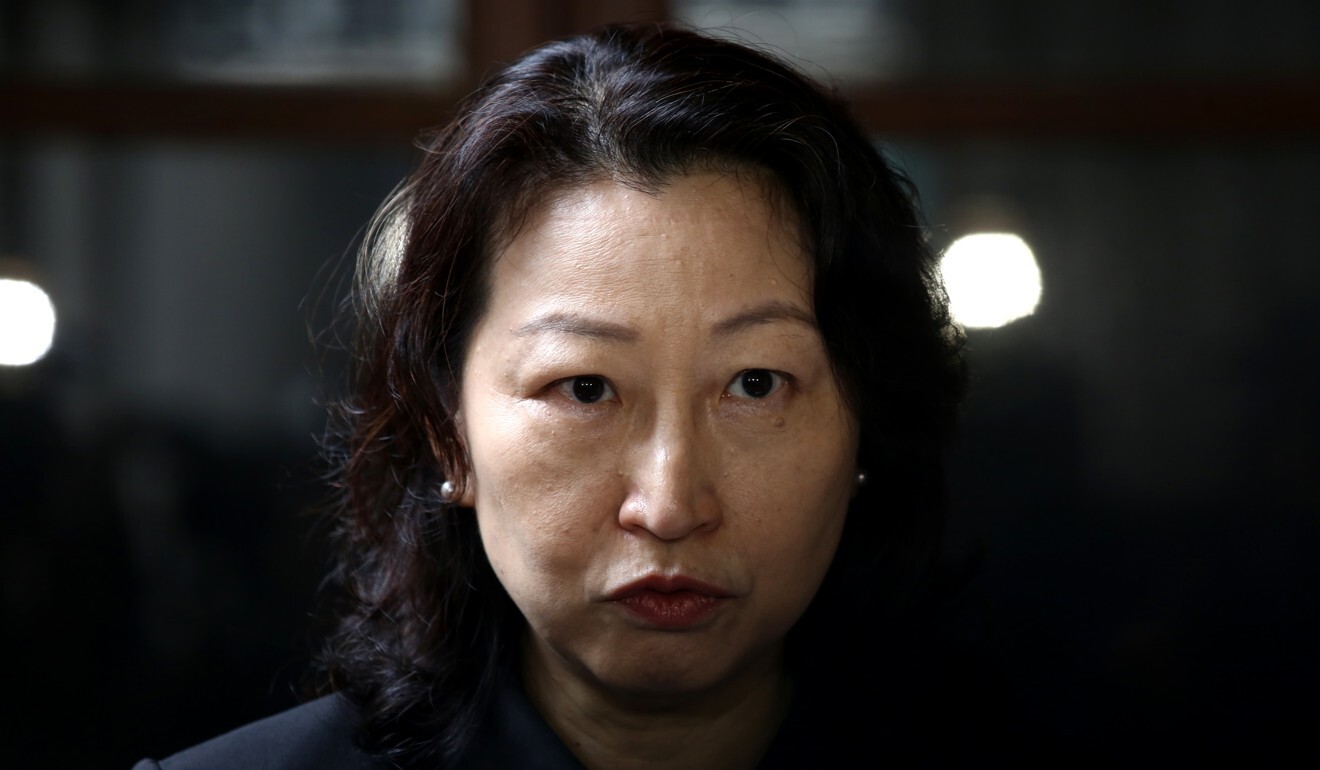
Hong Kong justice minister moves to end private prosecution over taxi driver accused of ramming protesters
- For the second time in a week, Teresa Cheng seeks to block opposition lawmaker Ted Hui from pursuing criminal cases tied to the social unrest
- The legislator accuses the minister of putting politics above the law and vows to fight with a judicial review

Hong Kong’s justice minister is seeking to quash a private prosecution brought by an opposition lawmaker for the second time in a week, this time over a taxi driver accused of ramming his vehicle into a group of protesters last year.
In a letter seen by the Post on Thursday, the Department of Justice invited Democratic Party lawmaker Ted Hui Chi-fung to choose a day before the end of the month for a 15-minute court session to “withdraw the summons”.
Assistant Director of Public Prosecutions William Siu Kai-yip, writing on behalf of Secretary for Justice Teresa Cheng Yeuk-wah, was referring to a summons Eastern Court granted Hui in June to pursue a criminal case against Henry Cheng Kwok-chuen, the driver.

Under the summons, Cheng, 59, faces one count of dangerous driving over the incident in Sham Shui Po on October 6, when protesters were rallying over the government’s ban on using masks to hide their identities. He is unrelated to the secretary.
The move came just two days after the minister wrote to Hui saying she would throw out his attempt to privately prosecute a policeman who shot 21-year-old protester Chow Pak-kwan, during a confrontation in Sai Wan Ho last year.
Hui accused her of putting politics above the rule of law, saying: “Teresa Cheng has adopted improper means to terminate the private prosecution without providing any reasonable grounds.”
Almost all prosecutions are brought by the justice department, but residents are entitled to pursue charges under the Magistrates Ordinance, a right contained in the common law system inherited from former colonial ruler Britain.
But the proceedings are subject to the department’s final say. Article 63 of the Basic Law, the city’s mini-constitution, states it has ultimate control over criminal prosecutions “free from any interference”.
Hui said Cheng’s action jeopardised that right. “This, in turn, becomes a support for violence used by the police and government supporters, upending rights and wrongs and seriously harming residents’ right to bring private prosecutions under the common law,” he said, vowing to lodge a judicial review to challenge the decision.
A department spokesman declined to explain the decision. “As the proceedings remain ongoing, it is not appropriate for the Department of Justice to comment on the matter,” he said.
Writing in a blog in June, Cheng said private prosecutions “which are groundless or frivolous or brought out of improper motives or political considerations should not be condoned”.
The Post has reached out to Henry Cheng for comment. In a previous interview, he said he had “a clear conscience” and no idea how the car lost control.
A 23-year-old woman reportedly suffered serious fractures to both legs after the taxi mounted the pavement outside the Cheung Sha Wan government offices before smashing into a shop front.
Vigilantes beat the driver, leaving him with fractured ribs and four stitches to his head.
But Cheng was never charged, while two men at the scene were arrested on suspicion of rioting and later released on bail.
Both sides of the political spectrum have turned to private prosecutions in recent months in a bid to pursue justice following the anti-government protests sparked by the government’s now-withdrawn extradition bill last year.
It is “extremely rare” for the justice department to end a private prosecution, a judge wrote in a ruling in 2016 relating to a challenge over the justice minister’s power. The department has exercised its prerogative only twice in 51 cases between 1996 and 2013.